As we all know, a picture is worth a thousand words. This is our aim: to make people think and to act for peace.
This week, we bring you a new cartoon, asking what troubles the Prime Minister most: “Existential Threat”
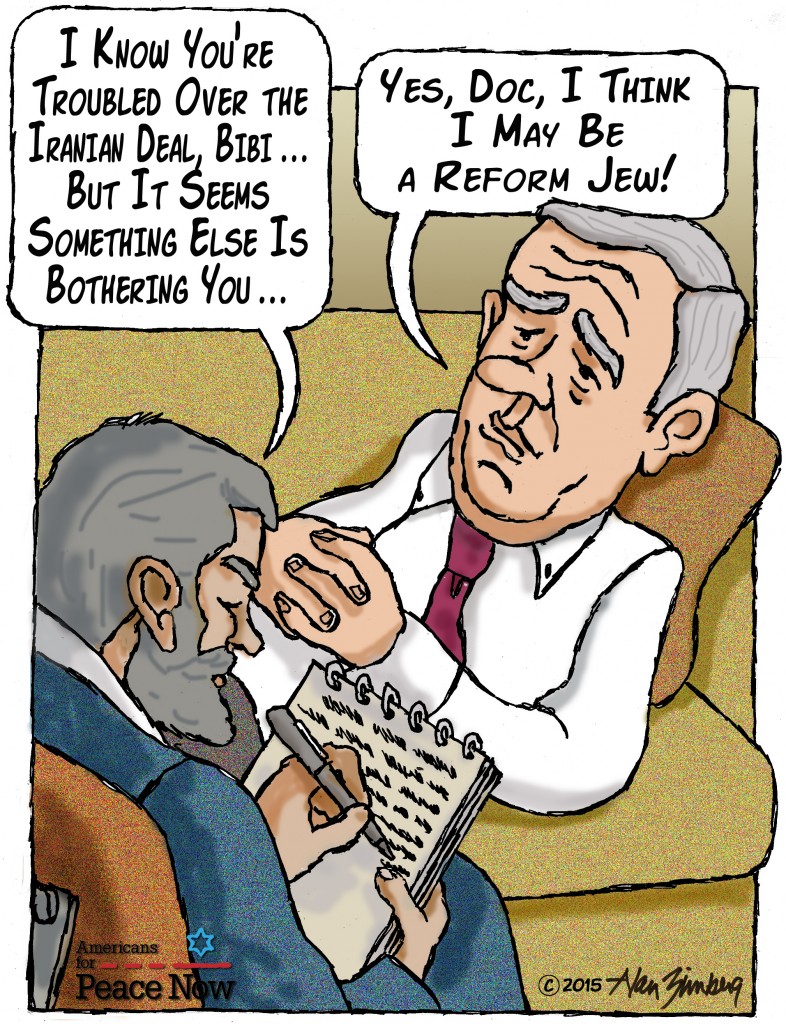
As we all know, a picture is worth a thousand words. This is our aim: to make people think and to act for peace.
This week, we bring you a new cartoon, asking what troubles the Prime Minister most: “Existential Threat”

 Rabbi Seth Goldstein has served as the rabbi of Temple Beth Hatfiloh in Olympia, WA since 2003,
after graduating from the Reconstructionist Rabbinical College in Philadelphia. He is a member of the board of
the Reconstructionist Rabbinical Association, served as a co-chair of an RRA task force examining issues of
Jewish status and identity, is a participant in the Clergy Leadership Program of the Institute for Jewish
Spirituality and a fellow of CLAL's Rabbis Without Borders.
Rabbi Seth Goldstein has served as the rabbi of Temple Beth Hatfiloh in Olympia, WA since 2003,
after graduating from the Reconstructionist Rabbinical College in Philadelphia. He is a member of the board of
the Reconstructionist Rabbinical Association, served as a co-chair of an RRA task force examining issues of
Jewish status and identity, is a participant in the Clergy Leadership Program of the Institute for Jewish
Spirituality and a fellow of CLAL's Rabbis Without Borders.
Tisha B’Av (“the ninth of Av”) is a day of fasting and mourning for the destruction of the ancient Temples in Jerusalem, and is observed this year beginning the evening of July 25. Like Yom Kippur, it is a full day fast (The fast is being observed on the 10th of Av this year because the 9th falls on Shabbat, and thus the fast is postponed.)
The Temple holds an important place in the collective spiritual consciousness of the Jewish people. It is seen as the place where the community was in deep and close connection to God. The destruction of the Temple led to the separation from the land, the dispersion of the community and a need to rebuild the ritual infrastructure of Judaism, so its loss is remembered as a great tragedy. In addition to setting aside this one day to mourn, prayers for the rebuilding of the Temple and Jerusalem punctuate our liturgy.
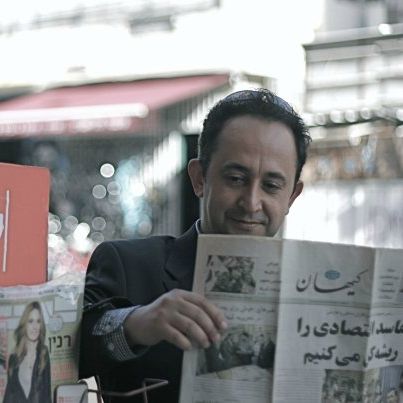
Interview with Iran expert Meir Javedanfar. An Iranian-born Israeli who co-authored a book on Iran's leadership and teaches courses on contemporary Iranian politics at the Interdisciplinary Center in Herzliya, Javedanfar is well-positioned to analyze attitudes toward the agreement both in Israel and in Iran. The interview is about 10 minutes long.

Interview with Barbara Slavin, Senior Fellow at the Atlantic Council, an Iran policy expert, on the impact of the new agreement on Iran and on prospects that the new agreement may serve to stimulate reform in Iran, going beyond Iran's nuclear ambitions. The interview is about 8 minutes long.
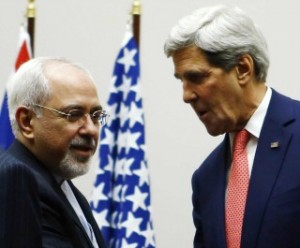
On July 14, the Obama Administration, its P5+1 partners, and the government of Iran announced the achievement of an historic agreement over Iran’s nuclear program.
This is a good deal. It is grounded not on trust and goodwill but on far-reaching limitations on Iranian activities and intrusive verification mechanisms. Implementation of this agreement –key elements of which will continue in force for decades – will make Israel, the region and the world more secure. When implemented, this agreement will:
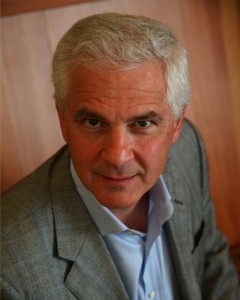
Interview with Joe Cirincione, the President of the Ploughshares Fund and one of Washington's leading experts on the diplomatic efforts to block Iran from acquiring a nuclear weapon. The interview is about 5 minutes long. It was conducted right after the Iran deal was announced.
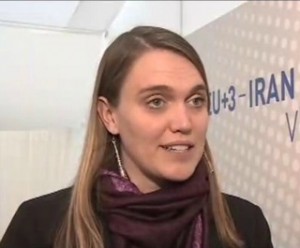
Interview with Kelsey Davenport, Director for Nonproliferation Policy at the Arms Control Association, upon her return from Vienna, shortly after a deal has been reached with Iran to block it from acquiring nuclear weapons. The interview is about ten minutes long.
Americans for Peace Now (APN) today welcomed news that the Obama Administration and its P5+1 partners – France, Germany, the United Kingdom, Russia, and China – have reached an agreement with Iran to radically roll back and limit Iran’s nuclear program. APN President and CEO Debra DeLee commented:
“We heartily congratulate President Obama and his P5+1 partners, and their indefatigable teams of expert negotiators, for the historic achievement announced today – an agreement that, when implemented, will verifiably roll back Iran’s nuclear program, limit Iran’s nuclear activities going forward, and prevent Iran from obtaining a nuclear weapon. It will also ensure that should Iran decide to break the terms of the deal and try to 'sneak out' to a nuclear weapon, both that the U.S. and international community have a far greater chance of detecting such an effort and are in a far stronger position to quickly determine the most effective course of action.
Following a Peace Now petition, the Israeli High Court of Justice ordered the demolition of 17 homes built on private Palestinian land at the illegal outpost of Derech Ha'avot. The State now has 90 days to appeal and it is considering a proposal by the Gush Etzion Regional Council to retroactively legalize the construction through a "re-parcellation" procedure. This proposal is a kind of legal acrobatics meant to confiscate lands without calling it a confiscation and it is clearly not legal. If this idea would be approved, the settlers could build anywhere, being sure that the land will be given to them eventually. Follow us as we continue the fight against illegal settlement construction.
Our annual conference will take place on July 24th 2015 in Tel Aviv.
To register and see the conference's full schedule, click here. Notice: the conference will take place in Hebrew.